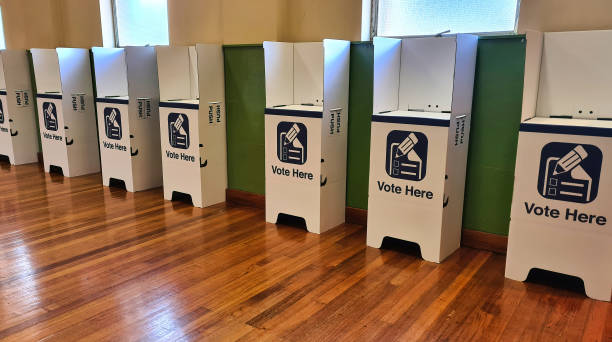

In the morning, respected SMH journalist David Crowe ran with the story that “Dutton leads, Labor on course for election defeat, according to shock poll”.
In what looked like a huge rejection of Labor and Anthony Albanese, with voters not influenced by the overdue interest rate cut, the numbers were terrible for the Government. “The shift has taken the Coalition to a lead of 55 per cent in two-party terms when Australians are asked how they would allocate their preferences on their ballot papers, driving Labor to just 45 per cent and putting it on course for defeat,” Crow reported, in looking at the Resolve Political Monitor, which was exclusive to Nine newspaper outlets.
In years gone by, I’ve often ignored the two party preferred polls as being unreliable, but who’s the preferred PM is the one that I think says the most about how we Aussies are thinking ahead of polling day.
“Dutton leads as preferred prime minister for the second consecutive month, ahead by 39 per cent to 35 per cent against Albanese, although 26 per cent of voters are undecided on this question,” Crowe revealed. “Asked which side offered strong leadership, 37 per cent name Dutton and the Coalition while 24 per cent name Albanese and Labor, a turnaround from when the prime minister led on this question one year ago.”
That was Monday morning. In the afternoon, the Roy Morgan Poll was released and this was the headline: “ALP takes lead on two-party preferred after Reserve Bank cuts interest rates: ALP 51% cf. L-NP 49%”!
That was my explanation mark but, given the contradictory polls, I was very gobsmacked.
Interestingly, the Resolve Poll actually looked at the impact of the rate cut last week, and this is what Crowe found and reported: “In a warning sign for Prime Minister Anthony Albanese, an exclusive survey also shows that 59 per cent of voters say the good news for the government last week – when the Reserve Bank cut interest rates – will not change their vote.”
The Roy Morgan press release came out with the following:
In the morning, we were looking at a new PM called Peter Dutton but, by the afternoon, it looked like Albo would get a second term. Ultimately, the real poll will be a test for these pre-election, private polling businesses that of late haven’t impressed those who have relied on them in the past.
On the US election, this is what BBC reported after the event: “For much of the 2024 US presidential campaign, polls and pundits rated the race too close to call. Then Donald Trump delivered a commanding victory over Kamala Harris, winning at least five battleground states, and performing unexpectedly well in other places.”
The BBC was completely honest in admitting that “ahead of the results, media outlets, including the BBC, warned that despite the close race in the polls, it could end up looking like a landslide for either candidate, given the margin of error”.
Why are polls unreliable nowadays? Some say many voters don’t like to reveal their leaning to the right until they’re in the polling booths, while many pollsters have also shifted to using online surveys, the BBC notes, “but experts said those were known for being unreliable” and left leaning because of a younger bias.
Elections are historically negative for the stock market but there can be a nice bounce, if the result indicates that one side has the political numbers to do what they’ve promised.
Over the weekend, Germany went to the right but not the far right AfD party, but it did register a 10-point gain on its numbers of four year ago, and it’s now the second biggest party in Germany.
Throw in the US move to the right, it augurs well for Peter Dutton and the Coalition, and the findings of the Resolve polling. But as John O’Grady once observed about Aussies in a book of the same name: ‘They’re a Weird Mob”. So, PM Albanese can live in hope that Roy Morgan’s survey team is on the money and he’s not a dead ducking quacking.